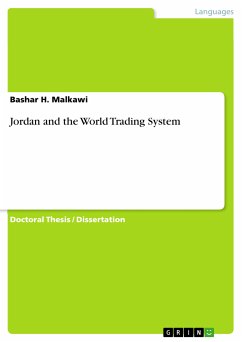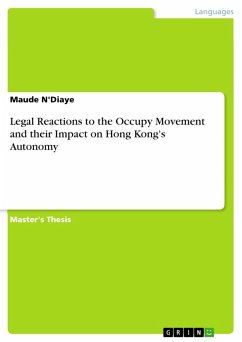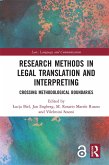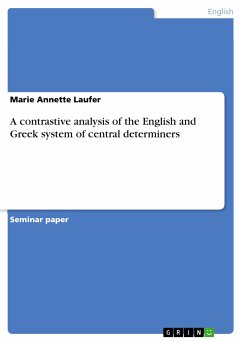Doctoral Thesis / Dissertation from the year 2017 in the subject Orientalism / Sinology - Arabistic, grade: 3, Washington College (American University), course: law, language: English, abstract: Arab countries are attempting to broaden their engagement in the multilateral trading system in a manner that has many implications. Not only have some Arab countries either acceded or are in the pipeline of acceding to the World Trade Organization (WTO), but their new commitments coincides with reorientations in their economic strategies. The purpose of this dissertation is to examine the implications on Arab countries. Given Jordan's accession to the WTO and its free trade agreement with the United States (U.S.), the country serves as an ideal candidate for other Arab countries. Jordan applied for WTO membership in 1994. After a lengthy and costly process of negotiations, Jordan became a WTO member in 2000. Furthermore, in 2000, the U.S. and Jordan concluded a bilateral trade agreement. My thesis is that acceding to the WTO and signing a bilateral trade agreement with the U.S. is like choosing between Scylla and Charybdis, because onerous trade liberalization commitments ensue from such actions. The WTO system as an institution may not be perfect. There are deficiencies in the system. However, membership in the WTO could afford better chances compared with bilateral trade agreements like the one between the U.S. and Jordan. Membership in the WTO could help Jordan, in cooperation with other Arab countries, preserve its rights. In current bilateral trade agreements, economic hegemonies such as the U.S. dictate the rules and weave them to their advantage. In sum, I make the case that the alternative to the WTO system is bilateral trade agreements with the U.S., and they are trade agreements in which Arab countries are bound to be disadvantaged. The dissertation analyzes Islamic law and economics and their relevance to international trade. It studies some of the obstacles Arab countries face in acceding to the WTO. The dissertation also examines the commitments Jordan undertook in its accession to the WTO as a case study for other Arab countries. Finally, the dissertation scrutinizes the United States-Jordan Free Trade Agreement.
Dieser Download kann aus rechtlichen Gründen nur mit Rechnungsadresse in A, B, BG, CY, CZ, D, DK, EW, E, FIN, F, GR, HR, H, IRL, I, LT, L, LR, M, NL, PL, P, R, S, SLO, SK ausgeliefert werden.









